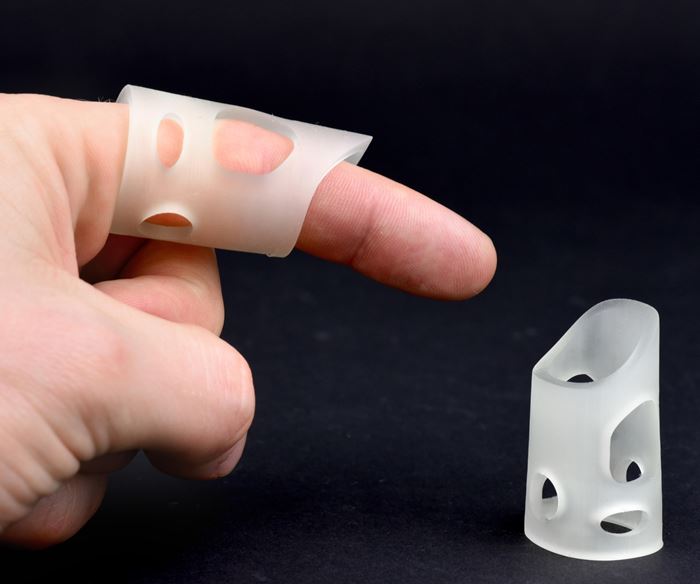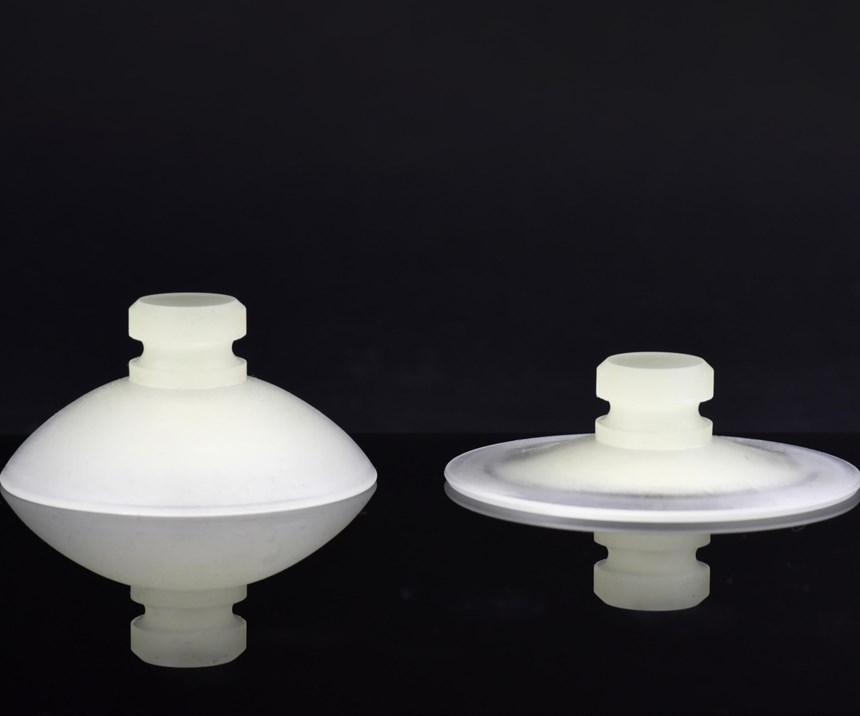Henkel, Origin Collaborate on Open Materials Platform
Henkel and Origin have partnered on Origin’s open materials platform to promote final parts production and the adoption of 3D printing technology.
To further drive the adoption of 3D printing technologies beyond prototyping to final parts production, Henkel has joined Origin’s open materials platform. The companies have signed an agreement to combine Henkel’s materials expertise with Origin’s printer and software knowledge. The partnership has already resulted in 3D printing solutions for the medical sector, according to the companies.
Henkel says it aims to further drive additive manufacturing towards the mass production of functional parts across various industries. The company launched a differentiated platform of next-generation resins during Formnext 2018. Henkel says by joining the open materials platform it will further intensify the development of customized materials for 3D printing of final parts.
“Our engineering resins respond to some of the most severe limitations for additive manufacturing at scale,” says Philipp Loosen, head of 3D printing at Henkel. “We have determined that Origin’s programmable photopolymerization technology (P3) offers a complementary technology for our high-performance materials. The partnership has a huge potential to enable a wide range of our resin portfolio for use in additive mass production, especially in the health and wellness sector.”
The parent silicone resins have been tested to Henkel’s protocols based upon ISO-10993 biocompatibility standards. The potential applications range from medical devices and surgery tools to pre-surgical models, hearing aids, face masks and others.
Related Content
-
How Machining Makes AM Successful for Innovative 3D Manufacturing
Connections between metal 3D printing and CNC machining serve the Indiana manufacturer in many ways. One connection is customer conversations that resemble a machining job shop. Here is a look at a small company that has advanced quickly to become a thriving additive manufacturing part producer.
-
What Is Neighborhood 91?
With its first building completely occupied, the N91 campus is on its way to becoming an end-to-end ecosystem for production additive manufacturing. Updates from the Pittsburgh initiative.
-
With Electrochemical Additive Manufacturing (ECAM), Cooling Technology Is Advancing by Degrees
San Diego-based Fabric8Labs is applying electroplating chemistries and DLP-style machines to 3D print cold plates for the semiconductor industry in pure copper. These complex geometries combined with the rise of liquid cooling systems promise significant improvements for thermal management.












